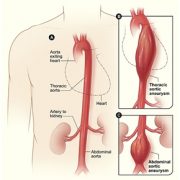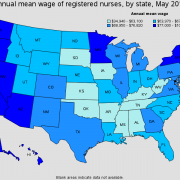The Gender Pay Gap and What You Can Do About It

Women have made great strides toward equality with men in both their personal and their professional lives. There is, however, a glaring lack of action and change in a critical area – pay. Using data from 2017, the federal government reports that the median annual pay of women who work full time is 20 percent less than the median annual pay of men who work full time. That means that for every dollar a man is paid, a woman is paid only 80 cents.
Read more7 Simple SEO Tips for Marketing a Medical Practice Online

How can you reach potential patients online? Google has taught us that search is indispensable in the patient journey, and it is the number one driver of traffic to websites. Practices seeking a digital marketing strategy should consider some of the following medical SEO tips to improve their online visibility…
Read moreA Question of Centimeters – Navigating the Tricky Waters of Surveillance and Watchful Waiting

How long do you wait for a centimeter?
In this case, we waited just 6 months. Not because of conflicting abdominal aortic aneurysm data, but to assuage a woman’s very reasonable fears. And to make sure she could get the imaging study done at a feasible cost — and because of broken water pumps and rabbit pies.
Read moreWhat Registered Nurses Earn in the Fastest Growing States

Nurses in some states earn strong incomes, but nurses in others have lower earning potential. Compare these factors against cost of living statistics, your own household’s financial needs, and your reasons for considering a move. Have a good idea of what incomes await you if you relocate to a fast-growing state.
Read moreInterview Questions That Get Results

In today’s difficult market, no healthcare facility can afford to waste time and resources on bad candidates or bad hires. Honing your interview skills can optimize the time you spend and the results they net.
Read moreEmotional Intelligence and the Physician Leader

For many of us, medical training helped suppress our EI; burying emotions was a self-protective mechanism to get through the long days and nights and the emotionally stressful highs and lows of caring for the ill and dying while building a wealth of medical knowledge and developing procedural skills. As a collective, physicians are starting to realize that this attitude has led to an increase in burnout, fatigue, and even physician suicide.
Read moreHow to Combat Night Shift Nursing Burnout

Since many of the risks of shift work are tied to obesity and metabolic syndrome, step up your efforts to prevent them. Exercising regularly, eating well, and keeping a healthy weight will make a difference…
Read moreSuccession Plans – Beneficial Across All Categories

A succession plan guarantees a smooth conversion for patients and the office’s practice. But succession planning isn’t just for private practitioners. Succession plans in large healthcare facilities not only create provisions for the future, they can also be used to attract and retain talent.
Read moreWorking with Recruiters as an Advanced Practice Clinician

Working with a recruiter can either be an obstacle or an asset. Not only are there different types of recruiters, but their experience and methods run the gamut. This article will help to educate the clinician reader about the basics of healthcare job recruiting and the role good recruiters can play in a job search. A good match between provider and recruiter can lead to a more productive and profitable relationship for both.
Read moreRecruitment Resolutions for 2019

In an employer market, recruitment is easy, but in today’s candidate market, an impeccable recruitment process is needed to win the war on talent. Resolve to make 2019 a year you focus your recruitment efforts smarter, not harder.
Read more